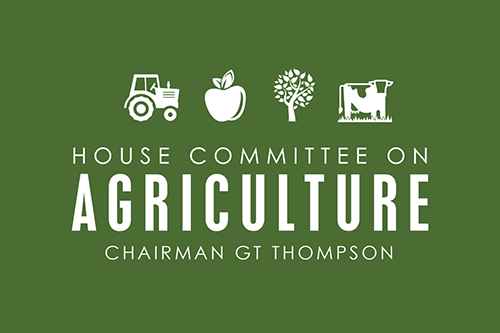 NCBA CLUSA recently responded to a regulatory request for input from the U.S. Department of Agriculture (USDA) Food and Nutrition Services (FNS), seeking input from stakeholders related to the Supplemental Nutrition Assistance Program (SNAP) Retailer Application. NCBA CLUSA’s comments advocated for equal treatment and recognition of food co-ops and the cooperative business model within the SNAP application and reauthorization process. SNAP is a USDA program that provides food benefits to low-income families to supplement their grocery budget and promote access to nutritious food through authorized SNAP retailers, including food co-ops.
NCBA CLUSA recently responded to a regulatory request for input from the U.S. Department of Agriculture (USDA) Food and Nutrition Services (FNS), seeking input from stakeholders related to the Supplemental Nutrition Assistance Program (SNAP) Retailer Application. NCBA CLUSA’s comments advocated for equal treatment and recognition of food co-ops and the cooperative business model within the SNAP application and reauthorization process. SNAP is a USDA program that provides food benefits to low-income families to supplement their grocery budget and promote access to nutritious food through authorized SNAP retailers, including food co-ops.
The USDA FNS request for comment sought input on the necessity of the information collected in the retailer application, accuracy of time burden estimates, ways to enhance data quality, and methods to minimize the burden on applicants.
NCBA CLUSA addressed barriers within the SNAP authorization and reauthorization application process that disrupt co-ops’ ability to serve their SNAP shoppers and participate in additional USDA programs that require SNAP participation, like the Gus Schumacher Nutrition Incentive Program (GusNIP) and the Healthy Food Financing Initiative (HFFI).
As full-service grocers and businesses created on the 7 Cooperative Principles, including “Concern for Community,” many food co-ops serve as authorized SNAP retailers. NCBA CLUSA’s membership includes individual food cooperatives and business services cooperatives like National Co-op Grocers, representing 230 consumer-owned food co-op locations, of which 97 percent serve as authorized SNAP retailers, increasing food security for community members most in need. Additionally, more than 42 percent of food co-ops offer needs-based discounts to community members, and SNAP serves almost 42 million individuals in the United States.
Food co-ops represent over $2 billion of the grocery market, and 1.3 million Americans are member-owners of a food cooperative. These co-ops create good-paying jobs and re-invest in the community at higher rates than traditional grocery stores, with the average food co-op donating $149,000 to local community groups. Food co-ops have cultivated relationships with local farmers and producers for decades, and the average grocery co-op works with 281 local farms and producers, accounting for 26 percent of product sales and $5.6 million in local products each year.
Food co-ops have helped launch thousands of local small business owners, providing a market for their products and demonstrating that building a resilient and equitable local supply chain is possible. Additionally, food co-ops work together to fund the National Farm to School Network, bringing the benefits of locally grown food into public schools in all 50 states and U.S. territories. By working collectively, food co-ops successfully support local communities by increasing food security, prioritizing local producers, and strengthening local economies. NCBA CLUSA will continue to advocate for the cooperative model across sectors and keep members informed of future efforts. For questions or more information, contact advocacy@ncba.coop.


